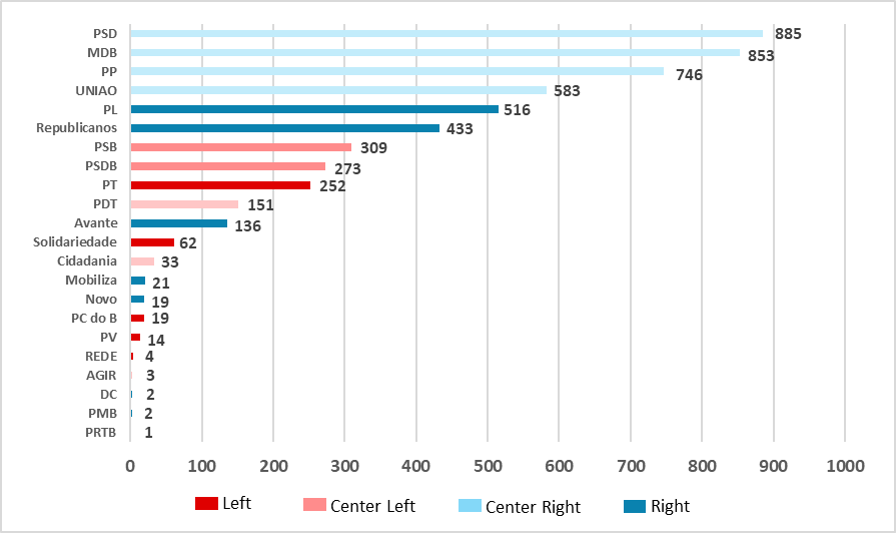Brazil: Muncipal Elections Shows the Force of the Center-Right
In Brazil’s recent municipal elections, Lula’s left and center-left base saw limited success, winning only 25% of municipalities, while the remaining went to right and center-right forces. The political landscape remains fragmented, with centrist influence strong. New right-wing figures are emerging, while Lula retains most of left wing popularity for 2026 Presidential elections.
Figure 1: Municipalities by Party

Source: TSE and Continuum Economics
Brazil held the second round of municipal elections last weekend, and now we have the full picture for the 5,565 municipalities. The outcome is clear: Lula’s left and center-left base was defeated, winning only in 25% of the municipalities, while the remaining 75% are in the hands of right and center-right forces. Nevertheless, Brazil’s political landscape remains severely fragmented, with the centrist forces being the most significant political influence.
It’s important to note that Lula’s government approval ratings remain around 45-50%, similar to those of former President Jair Bolsonaro. We expect Lula’s coalition government to continue largely in the same direction, with consensus-driven laws, like tax reform, likely to pass, while more radical legislation from both right and left forces will probably not gain traction.
The center is likely to remain a key player in Brazilian politics, and the current fragmentation, with multiple parties participating in the legislative process, will likely require that any future president in Brazil will need to negotiate with these groups, which means that abrupt changes can be ruled out for the next years.
Another insight is that right-wing forces, previously led by Jair Bolsonaro, now have new figures who could step into his role. Brazil’s most powerful state, São Paulo, was won by Ricardo Nunes of the MDB, with strong support from Tarcísio de Freitas of the Republicanos party. Although both were endorsed by Bolsonaro, his presence in the campaign was minimal.
On the other hand, the left has struggled to promote new figures who could inherit Lula’s popularity. Guilherme Boulos from PSOL, who ran for mayor of São Paulo, was decisively defeated. Lula’s party, the PT, secured only 252 municipalities. Still, Lula remains highly popular in the Northeast, and a general rejection of more extreme candidates could strengthen his position for a potential 2026 bid. Meanwhile, Jair Bolsonaro is ineligible for office for eight years. Right-wing forces are attempting to reverse this through both judicial measures and Congress, though we consider a successful reversal unlikely. As a result, the right-wing camp has yet to settle on a candidate, with São Paulo Governor Tarcísio de Freitas being the favorite. At this point, it is unclear who would emerge victorious in a race between Tarcísio de Freitas and Lula.